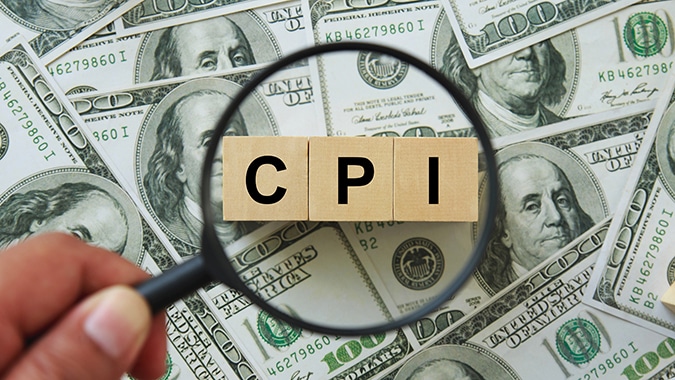The Consumer Price Index released Tuesday showed the annual inflation rate ticked upward to 3.2% for the 12-month period ending in February, a slightly faster pace than January’s 3.1% year-over-year increase.
Although the 12-month CPI increase was higher than economists had predicted, the monthly increase was more in line with expectations. The CPI rose 0.4% from the month of January to February, following the 0.3% monthly increase between December 2023 and January 2024.
A 2.3% increase in energy costs helped to boost the main inflation figure for the month. Food costs were flat for the month, while shelter costs climbed another 0.4% during the month.
The core index, which excludes the more volatile food and energy indexes, rose 0.4% for the month of February, just as it did in January. Indexes that increased in February include shelter, airline fares, motor vehicle insurance, apparel, recreation and used cars and trucks.
The index for personal care, the index for household furnishings and operations and the index for new vehicles were among those that recorded a monthly decrease.
How the latest CPI news showing stubborn inflation factors into the Federal Reserve Board’s decision on interest rates remains to be seen. The Fed’s stated goal is to bring inflation down to 2% and it has kept interest rates high as part of its efforts to cool the economy.
At its last meeting on Jan. 31, the Federal Reserve kept the federal funds rate unchanged at a 23-year high of 5.25%-5.5% but signaled the central bank could begin reducing interest rates sometime in mid-2024. The Fed’s next meeting is on March 19-20.
Here is a breakdown of the key components of the latest CPI Summary.
All Items Less Food and Energy
Viewed on an annual basis, the all items less food and energy index (also called the “core index”) is up 3.8% for the 12-month period ending in February. The 5.7% increase in shelter costs accounted for roughly two-thirds of the total year-over-year increase in the core index. Other core index items with notable increases over the past 12 months include motor vehicle insurance (+20.6%) medical care (+1.4%), recreation (+2.1%) and personal care (+4.2%).
Energy
Despite the monthly 2.3% increase in overall energy costs during February, fueled largely by a 3.8% increase in gasoline prices, the energy index has actually declined on a year-over-year basis. The energy index fell 1.9% for the 12-month period ending in February. Within the energy index, gasoline prices declined 3.9% year-over-year and natural gas prices declined 8.8% during the same period. However, the electricity index rose 3.6% over the past 12 months.
Food
Although the food index was unchanged for the month of February, the food at home index has risen 1% over the last 12 months. Dairy, meats, poultry, fish and egg prices have declined but the cost of cereals, baked products and fruits and vegetables have increased year-over-year. In the food-away-from-home category (+4.5%), the index for limited-service meals has risen 5.2% over the last 12 months, and the index for full-service meals has risen 3.8% over the same period.

